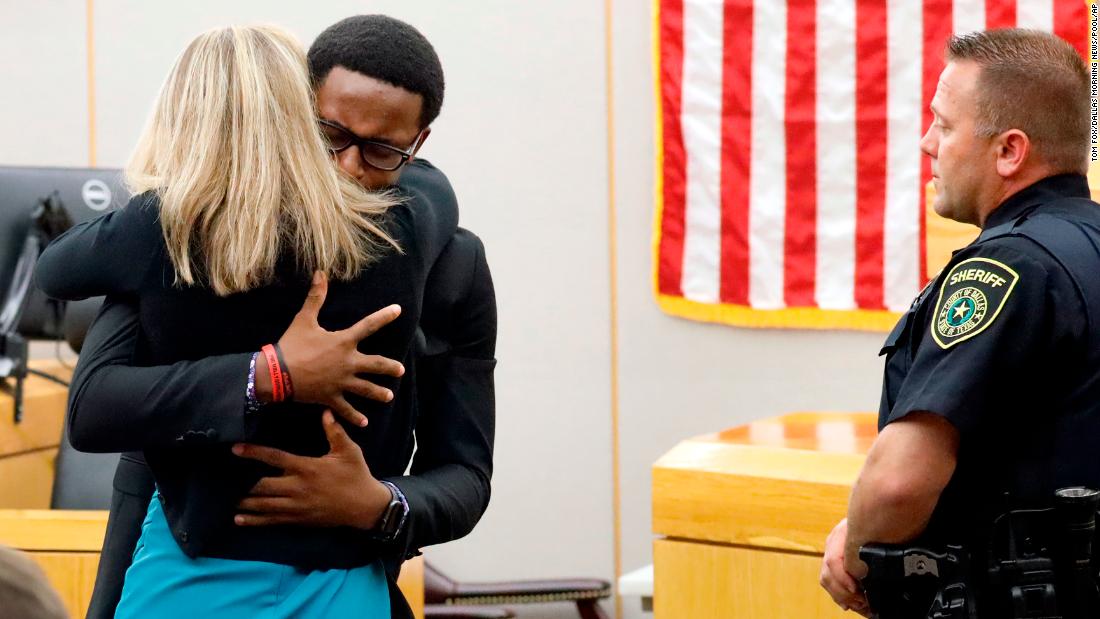[ad_1]
His actions would probably have been used as yet more evidence in the long line of excuses made to ignore or downplay rampant racial disparities that have been with us since the American criminal justice system was created, used to drive home the racist idea that it’s OK for police to brutalize or shoot black people because we are supposedly uniquely violent.
Those were the thoughts rumbling through my mind as I watched 18-year-old Brandt Jean, the younger brother of Botham Jean, a man gunned down in his own apartment by white Dallas police officer Amber Guyger, forgive and wish well, then embrace Guyger after she was sentenced to prison.
I get why others only felt inspiration, and were moved by such a selfless act. The faith that moved Brandt Jean to say those words is the faith that convinces me to hold onto the idea of redemption for all, even those who do dastardly things.
It’s why I have argued against the death penalty, even for white supremacist Dylann Roof. It’s why I remained in a mostly-white Evangelical church for nearly two decades despite my unease with fellow Christians who began embracing ugly racial views, because we must walk our faith, even during difficult, conflicted times. That’s how I know why Brandt Jean’s words moved so many people.
And I suspect that among those claiming to be inspired by such acts of black-people grace are incapable, or unwilling, for example, to forgive former San Francisco 49ers quarterback Colin Kaepernick for the “sin” of silently, peacefully kneeling during the national anthem to highlight racial injustice.
Why does the inspiration they proclaim after yet another black person publicly forgives yet another white killer hardly ever result in tangible evidence that they won’t simply pocket the gesture without even re-examining why racial prejudice and disparities persist or their role in that persistence?
It wasn’t as though I was angry with Brandt Jean as I had those thoughts during Amber Guyger’s sentencing. I wasn’t, and I’m not now. He did nothing wrong. He has every right to grieve and live out his Christian faith — which requires extending grace even to our enemies even when it hurts, especially when it hurts — however he chooses.
Brandt Jean and his family had every right to be angry. But had he expressed that black anger, many in white America would not be celebrating him today. Heck, had Brandt Jean decided to silently, peacefully kneel in the middle of the courtroom instead of hugging Guyger, I have no doubt that much of white America would have written him off as just another ungrateful, unpatriotic black man– the way they have Kaepernick.
Black people fought alongside white people during the American Revolution — and were still enslaved afterwards. Black people fought alongside white people during the Civil War — and then had to endure a century of lynchings. Black soldiers fought alongside white people during WWII, helping to save the world from Adolph Hitler, only to be treated atrociously when they returned to American soil.
Some of the loved ones of those massacred by white supremacist Dylann Roof in a historically-black church in Charleston forgave Roof. White America said it was inspired by such a selfless act — then promptly went out and put Donald Trump and his bigotry in the White House despite the cries from black people. What will white America do now with the inspiration they claim they feel in the wake of Brandt Jean?
[ad_2]
Source link


